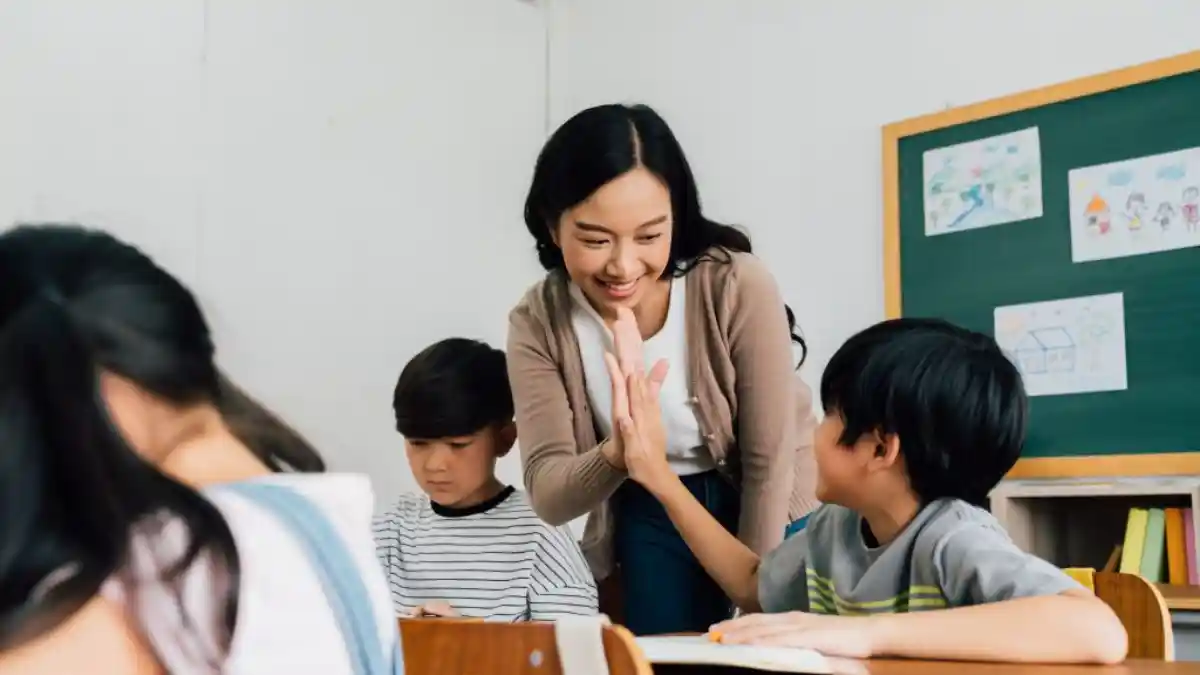Singapore’s newly appointed Minister for Education, Desmond Lee, has outlined a forward-looking vision for the city-state’s education system, emphasizing the need to prepare students for an AI-driven future while fostering social-emotional skills and a passion for lifelong learning. Speaking to the media during his first school visit at Oasis Primary School in Punggol on July 8, 2025, Mr. Lee underscored that while artificial intelligence (AI) tools can handle both routine and complex tasks, they cannot replace the fundamental need for strong judgment, reasoning, and foundational knowledge among young learners.
AI as an Enabler, Not a Replacement
In an era where AI is increasingly integrated into daily life, Mr. Lee stressed that technology must serve as a tool to enhance learning rather than supplant it. “AI cannot supplant learning – it must enable it,” he said during his visit. He highlighted the importance of preparing children for a future where AI is pervasive, advocating for age-appropriate use of such tools in classrooms and educating students on both the potential and limitations of AI. His comments reflect a broader concern about ensuring that technological advancements do not undermine critical thinking and human judgment.
As an example, Mr. Lee pointed to how AI can assist young lawyers in drafting submissions. However, he noted that only those with proper training and experience can critically assess and refine AI-generated outputs. “You can tell what is right, what is wrong. What is real and what is not, and what is right for your situation,” he explained. This analogy underscores his belief that foundational knowledge and discernment remain indispensable, even as technology evolves.
The Ministry of Education (MOE) under Mr. Lee’s leadership aims to integrate AI into education thoughtfully, ensuring that students are not only consumers of technology but also critical thinkers who can navigate its complexities. This approach aligns with Singapore’s broader ambition to remain a global leader in innovation while maintaining a strong educational foundation.
Fostering Social and Emotional Skills
Beyond technological preparedness, Mr. Lee identified social and emotional skills as a critical area of focus for MOE. He argued that these skills are becoming increasingly vital, not just in academic settings but also in workplaces and communities. “All these social-emotional skills can be more important than just your academic hard knowledge,” he remarked, highlighting traits such as compassion, self-expression, self-regulation, and empathy as essential for navigating challenging environments.
During his visit to Oasis Primary School, Mr. Lee observed Primary 4 English and art lessons designed to integrate these skills into the curriculum. In the English class, students discussed the young adult novel Wonder, which tells the story of a boy with facial deformities, using it as a platform to explore feelings of discrimination and empathy. In the art lesson, pupils collaborated in groups to design superhero logos based on shared values, fostering teamwork and creativity.
Mr. Lee praised these methods for bringing lessons to life. “It doesn’t just give our children the foundation in the subject, but also uses the opportunity to get them to think critically, think thoughtfully, to engage with classmates and to think about how they relate to people who are different from themselves,” he said. He also noted the value of group activities in nurturing leadership, collaboration, and cooperation, describing the outcomes as “bigger than the sum of the individual parts.”
This focus on social-emotional learning reflects a growing recognition in Singapore that education must extend beyond academic achievement to prepare students for the interpersonal demands of modern life. By embedding these skills into subjects like English and art, MOE aims to create well-rounded individuals capable of thriving in diverse settings.
Shifting Away from Grade-Centric Competition
Another cornerstone of Mr. Lee’s vision is a “generational shift” away from an overemphasis on grades and competition, towards cultivating a genuine passion for learning. He acknowledged that this transformation will require time and collaboration among pre-schools, primary schools, and parents. “It will take time, and we require three parties to play a part – our pre-schools, primary schools as well as our parents,” he stated.
This shift is particularly significant in Singapore, where academic performance has historically been a key measure of success. The pressure to excel in examinations has often overshadowed other aspects of personal development, leading to stress among students and families. By prioritizing a love for learning over numerical scores, MOE hopes to foster a more holistic educational environment that values curiosity and growth over rote achievement.
Mr. Lee’s comments suggest a cultural reorientation, one that could redefine success for future generations of Singaporean students. However, implementing this change will likely face challenges, including entrenched societal expectations and the need for consistent messaging across educational institutions and households.
Supporting Vulnerable Communities
Addressing equity in education, Mr. Lee highlighted the importance of supporting children from challenging backgrounds, such as those whose families benefit from ComLink+, a scheme designed to assist lower-income households. He described a triangular approach encompassing housing, education, and jobs or skills as critical areas where these families need support. “I think it will give them a better shot in achieving stability, self-reliance and, ultimately, social mobility,” he said.
Strengthening community partnerships with schools is a key strategy in this effort. By aligning educational initiatives with broader social support systems, MOE aims to create pathways for disadvantaged students to overcome systemic barriers. This focus on social mobility underscores Singapore’s commitment to meritocracy, ensuring that every child has the opportunity to succeed regardless of their starting point.
Strengthening Pre-School to Primary Transitions
Mr. Lee also emphasized the need to improve transitions from pre-school to primary school, particularly through MOE Kindergartens (MKs). Visiting MK@Oasis, located within Oasis Primary School, he noted that MKs provide a unique opportunity to test innovative pre-school pedagogies and enhance early education. “Our pre-school landscape is diverse and rich, and we are the better off for it. But MKs allow an opportunity to test-bed ideas for us to be able to look at enhancements to pre-school pedagogies,” he explained.
Many parents value the continuity offered by MKs situated within primary schools, as children often proceed to nearby primary institutions. Madam Nur Liyana Saine, a mathematics and science teacher at Oasis Primary School, shared her experience with her daughter Faiha Fatiha, who transitioned from MK@Oasis to Primary 1 in the same school. “She knew what to expect, like where to go during morning flag-raising and reading time, because she had experienced it in MK,” Madam Liyana said. She added that familiarity with large spaces like the school hall, through events such as Chinese New Year celebrations, eased the transition for her daughter.
Launched in 2014, the MK program aims to provide affordable, quality pre-school education while encouraging bilingualism and laying a strong foundation for language learning. An MOE spokesperson revealed plans to open 60 MKs by 2029, signaling a significant expansion of this initiative to support early childhood development across Singapore.
Bilingualism as a Cultural and Practical Asset
During his observation of mother tongue lessons at MK@Oasis, Mr. Lee reiterated the importance of bilingualism as a cornerstone of Singapore’s identity and global connectivity. “It gives us a cultural ballast and richness in our identity. And from a utilitarian, pragmatic point of view, it connects us with the region and the world,” he said. He emphasized the need for deliberate efforts to support mother tongue languages in a predominantly English-speaking environment, noting that early exposure is crucial for lifelong proficiency.
Singapore’s bilingual policy, which encourages proficiency in English and a mother tongue language (such as Mandarin, Malay, or Tamil), has long been a distinguishing feature of its education system. By starting language learning at a young age, MOE aims to ensure that students maintain cultural ties while gaining practical skills for regional and international engagement.
A Vision for the Future
Mr. Lee’s first school visit as Education Minister offers a glimpse into a multifaceted strategy for Singapore’s education system—one that balances technological innovation with human-centric skills, equity with excellence, and cultural heritage with global relevance. His emphasis on AI literacy, social-emotional learning, and a shift away from grade-centric competition suggests a holistic approach to preparing students for an uncertain future.
Yet, the success of these initiatives will depend on sustained collaboration among educators, parents, and policymakers. As Singapore continues to navigate the challenges of a rapidly changing world, the question remains: can these reforms create an education system that truly nurtures both the mind and the heart?
















